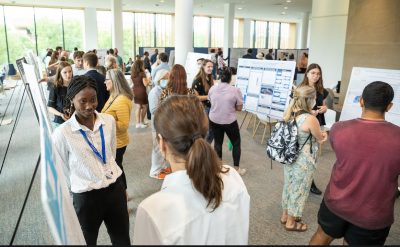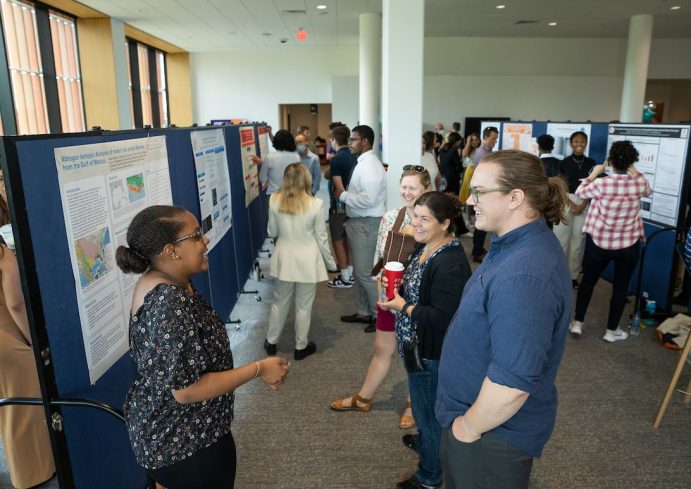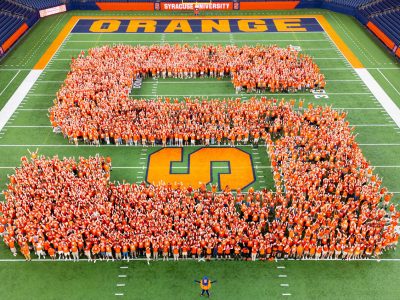Faculty Can Apply for Undergraduate Research Assistantship Funding Through Feb. 16
A new cycle of grant funding is available for faculty who want to hire undergraduate students to participate in their research and creative projects as paid research assistants.
Faculty applications for the Syracuse Office of Undergraduate Research and Creative Engagement (SOURCE) Research Assistant awards are due by Thursday, Feb. 16. Funding can be obtained for research assistants to work up to three semesters (summer 2023 through summer 2024). Applications can be entered at the submission link.
The program funds between one to three undergraduate students to work as research assistants in a faculty mentor’s ongoing or new research/creative projects. The program is administered through the University’s Office of Research using Invest Syracuse funds. The research assistantship program was piloted in spring 2020 and fully established in fall 2021. Awards are offered in annual fall and spring application cycles.
Priority Consideration
To encourage students to begin research work early in their educational careers, priority is given to mentors who are working with first- or second-year undergraduates. Priority consideration is also given to mentors who are working in the humanities, social sciences, arts, communications, journalism or management fields to boost participation in areas having traditionally lower rates of undergraduate research activity, according to Kate Hanson, SOURCE director.

503 Undergraduates Funded
To date, 503 undergraduates have been funded as research assistants in 251 separate faculty projects, with 173 unique faculty members, says Hanson. Since its inception, the number of S.I. Newhouse School of Public Communications students and School of Information Studies students supported by SOURCE funding have both doubled, and the number of participating Maxwell School of Citizenship and Public Affairs students involved has quadrupled, she adds.
“Our growing numbers signal the program’s popularity for both student learning and faculty research productivity,” Hanson says. “When talented undergraduates are paired with thoughtful faculty mentors doing innovative and cutting-edge work, it sparks creativity and collaboration that are truly beneficial for both. Students build their skills, receive unparalleled training in the research practices of the discipline and typically grow into their own independent research work all while making often significant contributions to the project. Creating paid positions has allowed students the time and resources to pursue these valuable research opportunities.”


